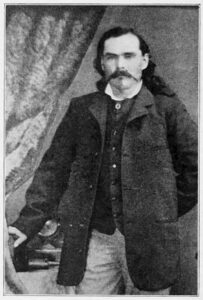
Philippians 4:4–9
Introduction
Our world today is in crisis. Fear grips nations. Anxiety weighs down families. Worry is the common language of the human heart. We search for peace in possessions, in politics, in pleasures — and still peace eludes us. But hear me today: there is a peace that cannot be bought, cannot be manufactured, cannot be stolen by the storms of life. It is the peace of Almighty God!
And Paul, writing not from a palace but from a prison cell, chained and beaten, declares with boldness: “Rejoice in the Lord always. And again I say, rejoice!” He offers us a pathway out of fear and into peace. A peace that surpasses understanding. A peace that stands guard over the heart and mind. A peace that belongs not to the world, but to God Himself.
This passage shows us the path, the practice, the promise, and the preservation of that peace.
The Path to Peace — Rejoice and Be Gentle (vv. 4–5)
Paul writes: “Rejoice in the Lord always; again I will say, rejoice.” The verb chairete is a command. This is not optional. Joy is to be the constant posture of the believer, not because circumstances are favorable, but because the Lord is faithful. Jesus Himself said in John 15:11, “These things I have spoken to you so that My joy may be in you, and that your joy may be made full.” Joy is rooted not in what happens to us but in who reigns over us.
Then Paul adds: “Let your gentle spirit be known to all men. The Lord is near.” The word epieikes carries the sense of forbearance, reasonableness, and gracious mercy. This is not weakness; it is strength under control. A believer’s gentleness is proof that Christ dwells within and that the Lord is at hand.
But what does rejoicing look like practically in the believer’s life? It means lifting the heart in gratitude when circumstances shout for despair. It means choosing worship when worry knocks at the door. It is the song sung in the valley, the prayer whispered in the night, the testimony spoken when others expect silence. To rejoice in the Lord is to anchor the emotions to His unchanging character rather than the world’s changing conditions.
Joy is not an afterthought — it’s the hallmark of Christian life. It’s not tied to luck or mood — it’s grounded in Christ’s unchanging presence. Paul even uses the phrase πάλιν ἐρῶ, χαίρετε (palin erō, chairete) — “again I will say, rejoice.” Notice how he switches to the future tense (“I will say”), adding force, as if to declare: “And I’ll keep on saying it as many times as needed — rejoice!”
We rejoice because He is faithful.
We rejoice because He is near.
We rejoice because His presence is greater than our problems, His grace greater than our grief, His mercy greater than our mess.
And if joy and gentleness set us on the path to peace, prayer is the practice that keeps us walking on it.

The Practice of Peace — Prayer Over Anxiety (v. 6)
Paul continues: “Be anxious for nothing, but in everything by prayer and supplication with thanksgiving let your requests be made known to God.”
The word merimnao (anxious) means to be divided, pulled apart by worry. Anxiety fractures the mind, robs the heart of focus, and strangles trust. Jesus warned in Matthew 6:25–34, “Do not be anxious… your heavenly Father knows what you need.” And Peter later echoed, “Cast all your anxiety on Him, because He cares for you” (1 Peter 5:7).
Paul gives the solution: prayer.
- Proseuchē (prayer): reverent worship before God.
- Deēsis (supplication): specific requests that acknowledge our dependence.
- Eucharistia (thanksgiving): gratitude that recognizes God’s goodness, even before the answer arrives.
Anxiety withers where prayer flourishes. Worry flees when gratitude reigns. The believer finds peace when every burden is laid at the throne of grace.
Not anxious in some things — but in nothing.
Not prayer in a few things — but in everything.
Not thanksgiving when the answer comes — but thanksgiving while you wait.
And when anxiety is surrendered to God in prayer, Paul says we will discover a promise unlike any other — the supernatural peace of God.

The Promise of Peace — God’s Guard Over the Heart (v. 7)
Paul now gives us the centerpiece of this passage: “And the peace of God, which surpasses all comprehension, will guard your hearts and your minds in Christ Jesus.”
The word eirēnē (peace) signifies more than a momentary calm. It echoes the Hebrew shalom — completeness, wholeness, harmony. This is God’s own peace imparted to His people.
It “surpasses understanding” — hyperechousa — rising above all human reasoning. It is peace that the world cannot explain, but the believer cannot deny.
And it “will guard” — phrourēsei — a military term. As Roman soldiers garrisoned Philippi, so God’s peace garrisons the believer’s heart and mind. The imagery is striking: God Himself posts His peace as a sentry at the door of your soul.
The peace of God defies reason.
The peace of God withstands attack.
The peace of God stands guard when fear would invade, when doubt would whisper, when the enemy would assail.
But this peace is not only a gift to receive. It is also a reality to preserve, and Paul shows us how.

The Preservation of Peace — Right Thinking and Living (vv. 8–9)
Paul exhorts: “Finally, brethren, whatever is true, whatever is honorable, whatever is right, whatever is pure, whatever is lovely, whatever is of good repute, if there is any excellence and if anything worthy of praise, dwell on these things.”
The verb logizesthe means to dwell on, to reckon with, to let your mind be occupied by. Peace is preserved by disciplining the mind. Romans 12:2 commands believers to be transformed by the renewing of the mind. Colossians 3:2 tells us to set our minds on things above, not on things on earth.
What fills the mind directs the life.
But Paul does not stop with thought. He moves to action: “The things you have learned and received and heard and seen in me, practice these things, and the God of peace will be with you.” The word prassete emphasizes continual, habitual practice. Right thinking must become right living.
And here Paul gives the ultimate promise: not only the peace of God (v. 7), but the God of peace Himself (v. 9). First His gift, then His presence. The Holy Spirit.
Not only His peace — but His presence.
Not only His gift — but His glory.
Not only His blessing — but the God of peace Himself.
And so Paul brings us to the end of this passage with an invitation to live in the fullness of peace — God’s peace, guarded and preserved in Christ.
All of these commands — to rejoice, to be gentle, to pray, to think rightly, and to live faithfully — serve one central purpose: to maintain the great promise Paul sets before us in verse 7. Everything flows toward and out of the assurance that the peace of God will guard the heart and mind in Christ. This is the centerpiece of Paul’s teaching, and every instruction he gives is designed to protect and preserve that peace in the life of the believer.
Guarding the Mind
Paul is essentially saying that our thoughts matter. Dwelling on bitterness, fear, or corruption feeds those things in us. Instead, focusing on what is noble and good builds peace, joy, and strength.
Filtering Input
In a modern world of media overload, this verse works as a filter:
- Is it true? (reliable, not false or misleading)
- Is it pure? (free from moral corruption)
- Is it lovely? (brings beauty or encouragement)
- Is it praiseworthy? (worthy of honor and respect)
If what we consume or dwell on fails these tests, Paul would say it is not worth our mental space.
Transforming Outlook
When people practice this mindset, it produces peace (as seen in Philippians 4:7, just one verse earlier). It is not just positive thinking but Christ-centered thinking that aligns the heart with God’s goodness. We can live in peace when our mind is stayed on Him and we live connected to Him.
Scripture promises, “You will keep him in perfect peace, whose mind is stayed on You, because he trusts in You” (Isaiah 26:3). This peace is not manufactured by human willpower but is applied by the Holy Spirit, who produces joy, steadies the mind, and aligns our hearts with Christ (Galatians 5:22–23; Romans 8:6). It is the Spirit’s work to anchor us in God’s truth and sustain our peace as we yield our thoughts and lives to Him.

Conclusion
The world is starving for peace, but only Christ can supply it. Politicians promise it, doctors prescribe it, entertainers sell it — but none of it lasts. Paul gives us the only way: rejoice in the Lord, pray without ceasing, think on what is good, live out what is true. And then — not maybe, not possibly, not someday — but then the peace of God will guard you, and the God of peace will be with you.
So I urge you: choose joy over despair. Choose prayer over anxiety. Choose truth over lies. Choose obedience over neglect. And you will discover that peace is not an illusion. It is not a dream. It is a living reality because the God of peace Himself is with you.
Rejoice — and peace will come.
Pray — and peace will come.
Think rightly — and peace will come.
Live faithfully — and peace will come.
But even more — the God of peace will come. Into your mind. Into your heart. Into your family. Into your future.
“Rejoice in the Lord always; and again I say, Rejoice!”




